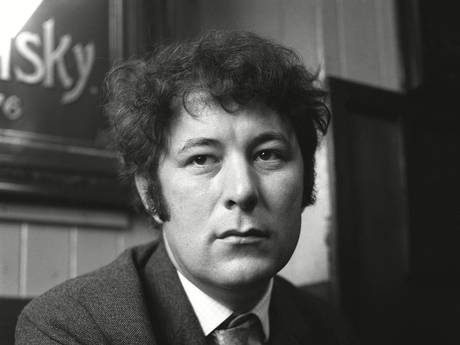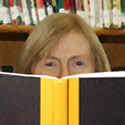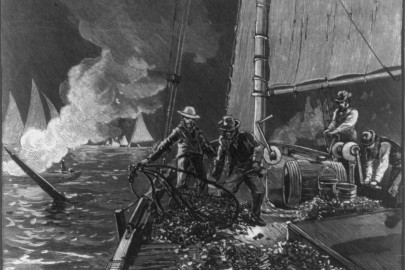Few can claim to have babysat for a great poet, but Rita can. Here is her personal memory of Seamus Heaney, who died last week…
The voice on the phone was unmistakably Irish. Was I free to babysit on Saturday evening? I was. It was 1971 in Berkeley and the Irishman on the phone was Seamus Heaney.
In America for less than a year and with no green card yet, I was eking out a living by babysitting. My main employer was a woman with three young girls. She was too old to be a hippie exactly but like many of the “over 30 and not to be trusted” residents of Berkeley she affected a bohemian air. She rather flaunted her friendships with artists and poets. One of her good friends was Robert Hass and it was through him that she was introduced to Seamus Heaney, in Berkeley for a year’s sabbatical at the University of California. When he was in need of a babysitter for his two little boys she recommended me. My good Irish last name and University degree from England reassured him that I was not some flighty Berkeley hippie girl. So began one of the more interesting episodes of my life.
I knew Seamus (after my first awkward “Mr. Heaney” he insisted I call him that) was a published poet but he was not then the eminence he would become. And he had a very easy, welcoming manner so I didn’t feel at all intimidated to talk with him about poetry. When I would arrive at the small apartment he was renting for the year there was always a wait while his wife Marie got ready to go out. Busy all day with two lively boys she would be behind time and rushing to get ready. She was often blow drying her hair. I remember once catching a glimpse of her through the bedroom door, head bent forward, her mane of dark hair falling and flying in the stream of air. This image came back to me years later when I read his poem The Skunk. Seamus never showed any impatience and sat in the living room chatting with me. We agreed that we were both over worshipping T. S. Eliot. He remarked how tedious it became to teach The Waste Land time after time. We shared our devotion to Gerard Manley Hopkins. We duly genuflected at the altar of Yeats. Of course I began to read his poetry, heading to Moe’s Books on Telegraph Avenue to purchase Death of a Naturalist with some of my meager earnings. I was duly impressed, and could now weave some knowledge of his work into our talks. At the time I didn’t realize what a privilege it was to enjoy these conversations. His Nobel Prize was more than two decades in the future.
Berkeley at the time was a hotbed of all kinds of radicalism including the Irish variety, which drew in many naïve Irish Americans. The center for this group was a pub called The Starry Plough which had tables set up outside where you had to make a contribution to “the cause” to be allowed entry. (For this reason my husband and I never went there despite our Irish heritage and partiality for Guinness). In this connection I had an unsettling experience while babysitting at the Heaney’s one night. There was a ring at the doorbell and I answered it to find a young Irishman standing there with a large package. When he heard my English accent he became very suspicious and questioned me about what I was doing there. He said he wasn’t expected but he had brought the package for Seamus to hand on to somebody else. He refused to give his name. I was alarmed and worried that the Berkeley Irish radicals were somehow trying to co-opt their resident poet into something nefarious. I actually can’t remember if the visitor decided not to leave the package or if I refused to take it, but I do remember that when I told Seamus about the incident he had a concerned, knowing look that made me feel my instincts were on track. As he would prove in his later life and writings, his interest in the Irish question was on a moral high ground beyond the simplicities of Berkeley’s faux radicals.
On another occasion I arrived at the Heaney’s to find a third child to care for, another couple preparing to go out with them for the evening. I was introduced to Conor Cruise O’Brien and his wife. When they all returned Seamus offered me a ride home along with his guests. I was seated in the back of the tiny car wedged up uncomfortably close to Mr. O’Brien. I felt compelled to try to make conversation but had no idea what to say to this distinguished personage. After some awkward silences Seamus enveloped us all in his gregarious, charming manner, easing my embarrassment as I was thrown against Mr. O’Brien with every swerve through the Berkeley streets.
When Mr. Heaney was awarded the Nobel Prize in 1995, and again when Beowulf became a bestseller, people began asking for his books in the library where I worked. I can’t deny that it was a bit of a thrill to casually drop into the conversation “Oh yes, I knew him in Berkeley before he was really famous!”
The Seamus Heaney I knew was a lovely man in every sense of the word. He had rough-hewn good looks, as though carved out of elemental rock, like his words. He was sweet and funny, and he adored his wife. Much is being written now about his literary brilliance and moral vision. I cannot add to that. But I can say that if the measure of a man is in how he treats the least of his fellows, like his children’s babysitter, he was a great man. He was unfailingly kind and gave the generous gift of his attention to a young woman who presumed to discuss poetry with him. I feel privileged to have known him and saddened that he has passed from this world.













Lucky you, Rita! Death of a Naturalist was one of the first poems I read that made me realise that not all poetry was written by boring lovesick victorians.
Thanks Rita, lovely to read about those experiences.
When he was Prof of Poetry at Oxford I very presumptuously wrote to him asking whether he had time to talk to me, a student at the time, about my poetry. He replied with a handwritten note informing me that his stint was up and he was just leaving in the next couple of days for the US and so wouldn’t have time to meet; but he was encouraging and said he’d be happy to read some poems if I were to send them on. I didn’t take up his offer, and a good job too as I really would have been wasting his time. But I always thought it was nice he went to a some trouble in his dealings with an entirely obscure student.
Beautiful. Thank you for sharing your memories of him.
Thanks Rita. Truly a great poet – we’ll be running some more Heaney-related features on The Dabbler in the coming weeks.